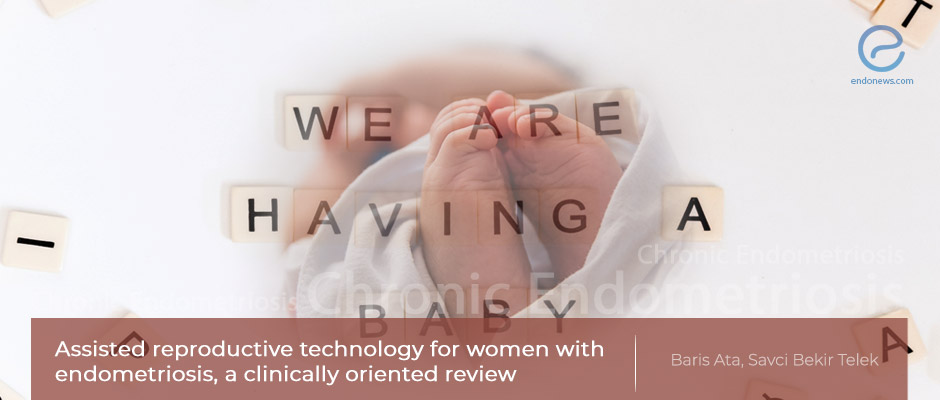Optimal management of infertility in endometriosis patients
May 19, 2021
Management of infertility in women with endometriosis should be individualized following a comprehensive counseling.
Key Points
Highlights:
- Infertility is frequently encountered in endometriosis patients and may require treatment with assisted reproductive technology.
Importance:
- Although several theories have been proposed to explain endometriosis-associated infertility, endometriosis alone does not affect the assisted reproductive technology results negatively.
What’s done here?
- This clinically oriented review was conducted to discuss the effect of endometriosis on assisted reproductive technology outcomes, medical and/or surgical treatment prior to ovarian stimulation, and determine its safety.
- Whether pituitary suppression should be recommended during ovarian stimulation for assisted reproductive technology is discussed.
- The appropriateness of fresh vs frozen embryo transfer in endometriosis patients was also investigated.
Key results:
- Although there are controversial results in the literature, a similar spontaneous pregnancy rate can be obtained in endometriosis patients.
- In assisted reproductive technology settings; mature oocyte number, fertilization- blastulation rates, good quality blastocyst numbers available for biopsy, aneuploidy rates, miscarriage, and live birth rates are comparable for infertile women with endometriosis to other infertility reasons.
- Severe endometriosis may have an adverse effect on fertility outcomes in assisted reproductive technology cycles.
- If there is no other reason to operate, surgery prior to assisted reproductive technology does not provide a benefit for fertility in endometriosis patients.
- Although initial studies suggest prolonged pituitary suppression during ovarian stimulation, recent publications have shown that assisted reproductive technology results do not improve using a GnRH agonist or a progestin.
- Recommendation of freeze-all approach routinely is not a right approach especially if the number of oocytes retrieved is less than 15.
- Ovarian stimulation does not cause recurrence or growth of endometriotic lesions.
Lay Summary
Pelvic pain and infertility are the main symptoms of endometriosis patients. Although the pathophysiological mechanism for infertility is not clearly understood, there are several theories explaining decreased fertility potential in women with endometriosis.
Ata and Telek, from Koc and Istanbul Universities of Istanbul, Turkey, recently published an opinion article entitled “Assisted reproductive technology for women with endometriosis, a clinically oriented review” in the journal named "Current Opinion in Obstetrics and Gynecology".
The authors aimed to investigate the effect of endometriosis on assisted reproductive technology outcomes. According to the authors, women with endometriosis and women with other causes of infertility have quite a similar number of mature oocytes, fertilization, and blastulation rates, good quality blastocyst numbers available for biopsy, aneuploidy rates, miscarriage and live birth rates after assisted reproductive treatments. Authors mention that if there is no other reason to operate, surgery prior to assisted reproductive technology should not be recommended for endometriosis patients.
The authors also mention that using a GnRH agonist or progestin would be unreasonable, as prolonged pituitary suppression during ovarian stimulation does not improve assisted reproductive technology results. Furthermore, the recommendation of the freeze-all approach routinely is not a right approach especially if the number of oocytes retrieved is less than 15.
The authors concluded that endometriosis does not change pregnancy rates in spontaneous cycles, and the assisted reproductive technology is safe and reasonable because ovarian stimulation does not cause recurrence or growth of endometriotic lesions.
“Assisted reproductive technology is an effective and safe treatment for endometriosis-associated infertility. Female age, ovarian reserve, presence of other symptoms, male factor, and patient preferences should be considered for planning a treatment strategy” they added.
Research Source: https://pubmed.ncbi.nlm.nih.gov/33769421/
assisted reproduction endometrioma endometriosis ovarian stimulation progestin infertility in vitro fertilization isci advanced endometriosis pregnancy ovulation egg frozen blastocyst oocyte

